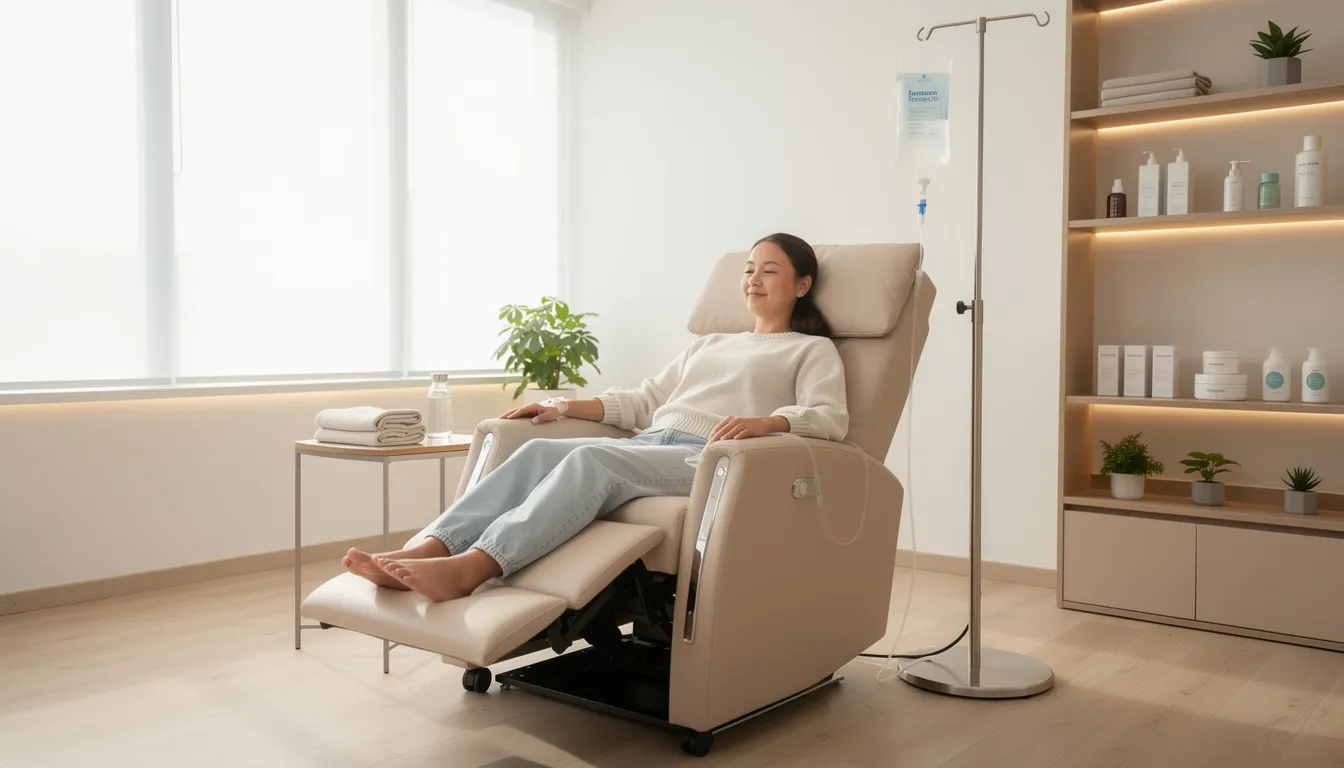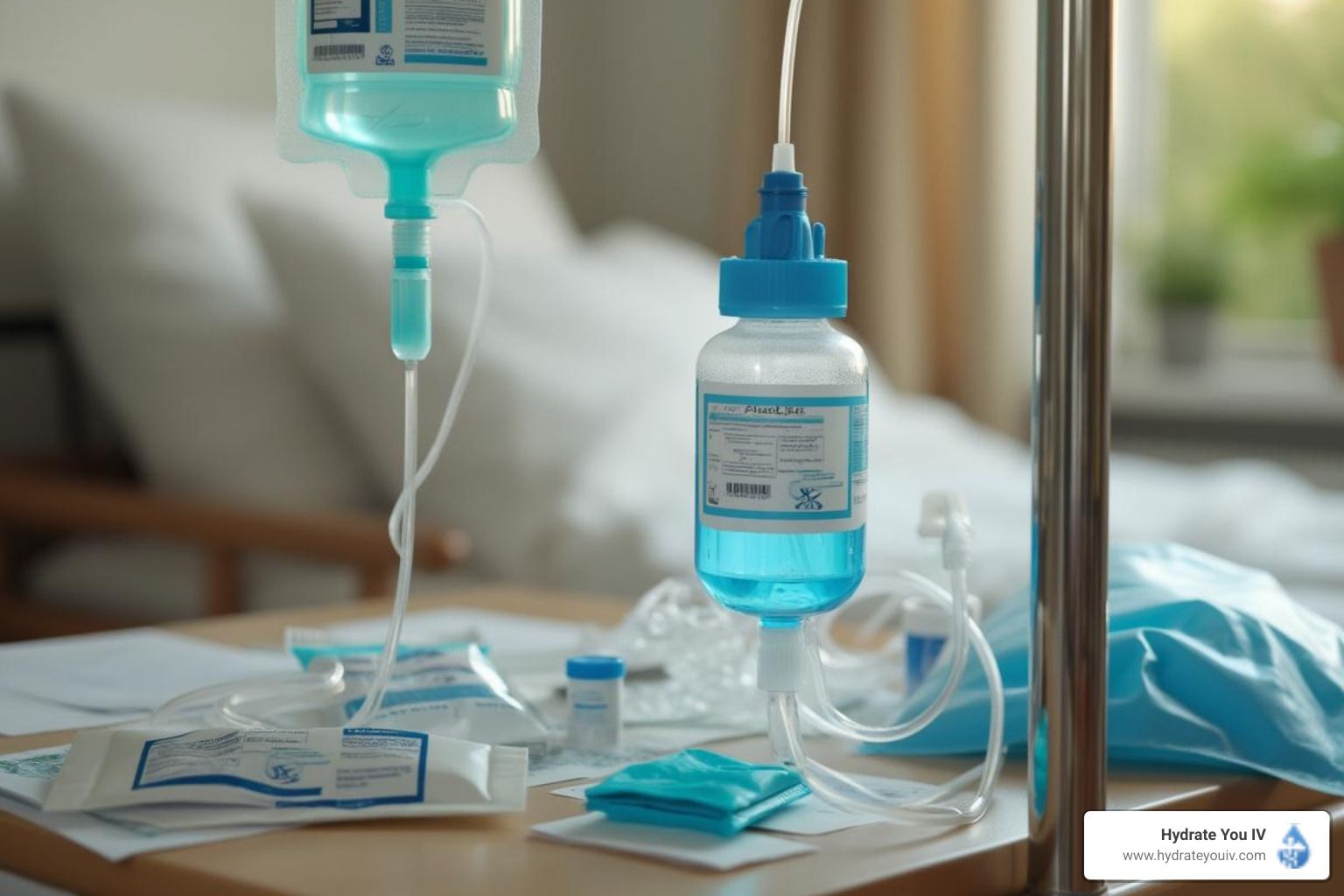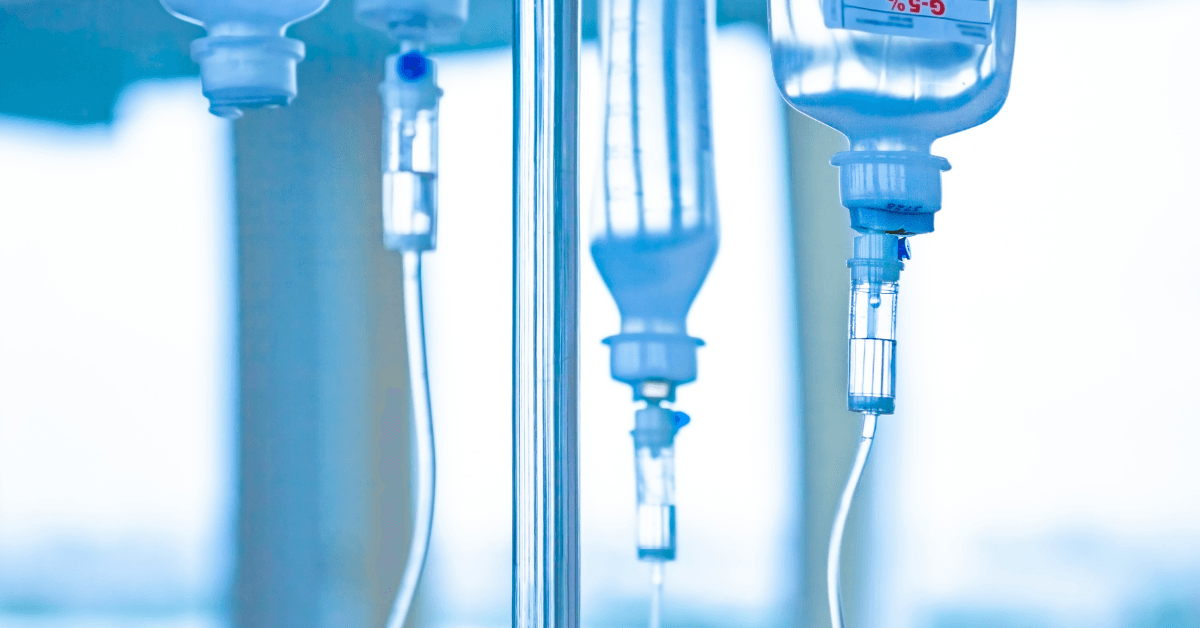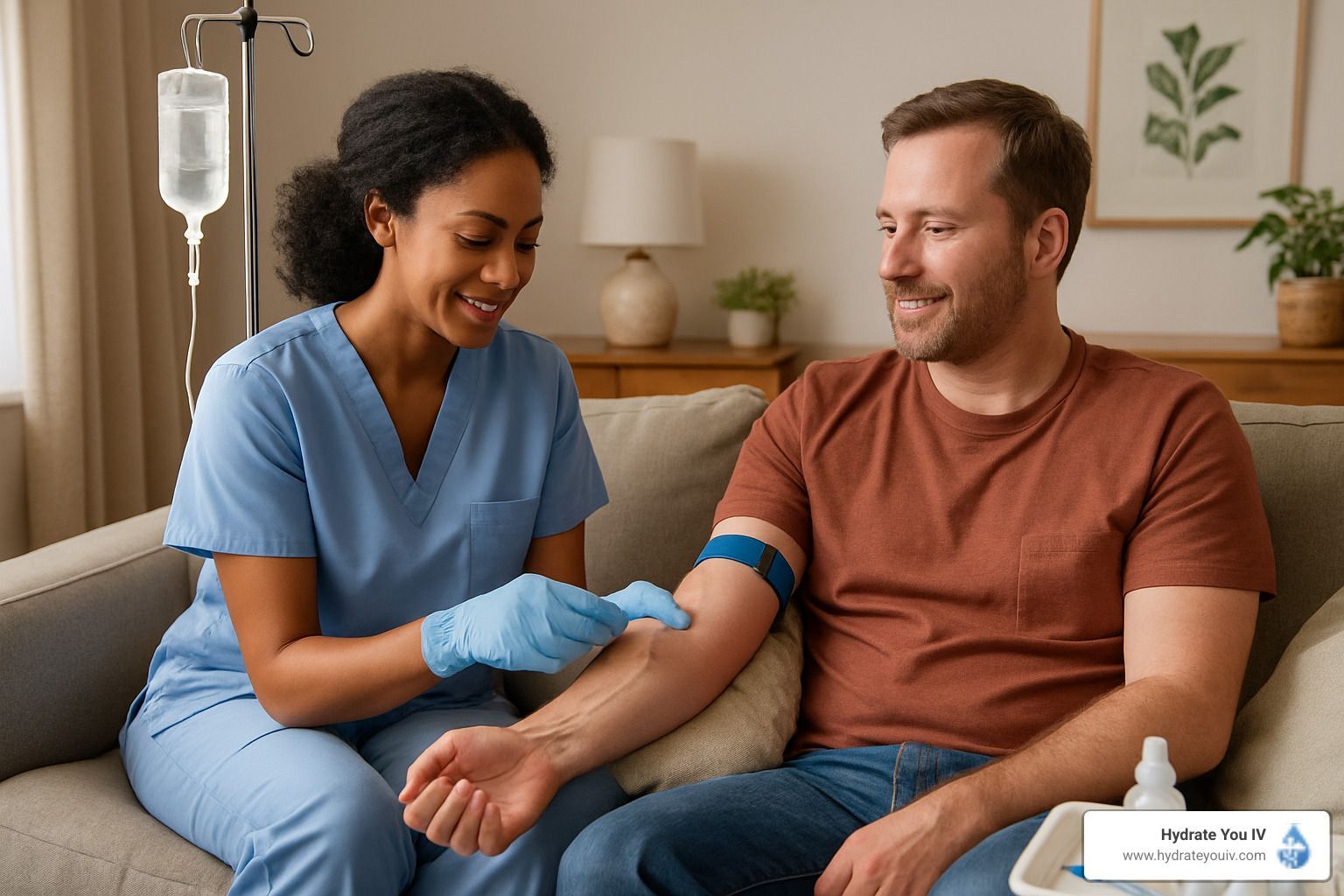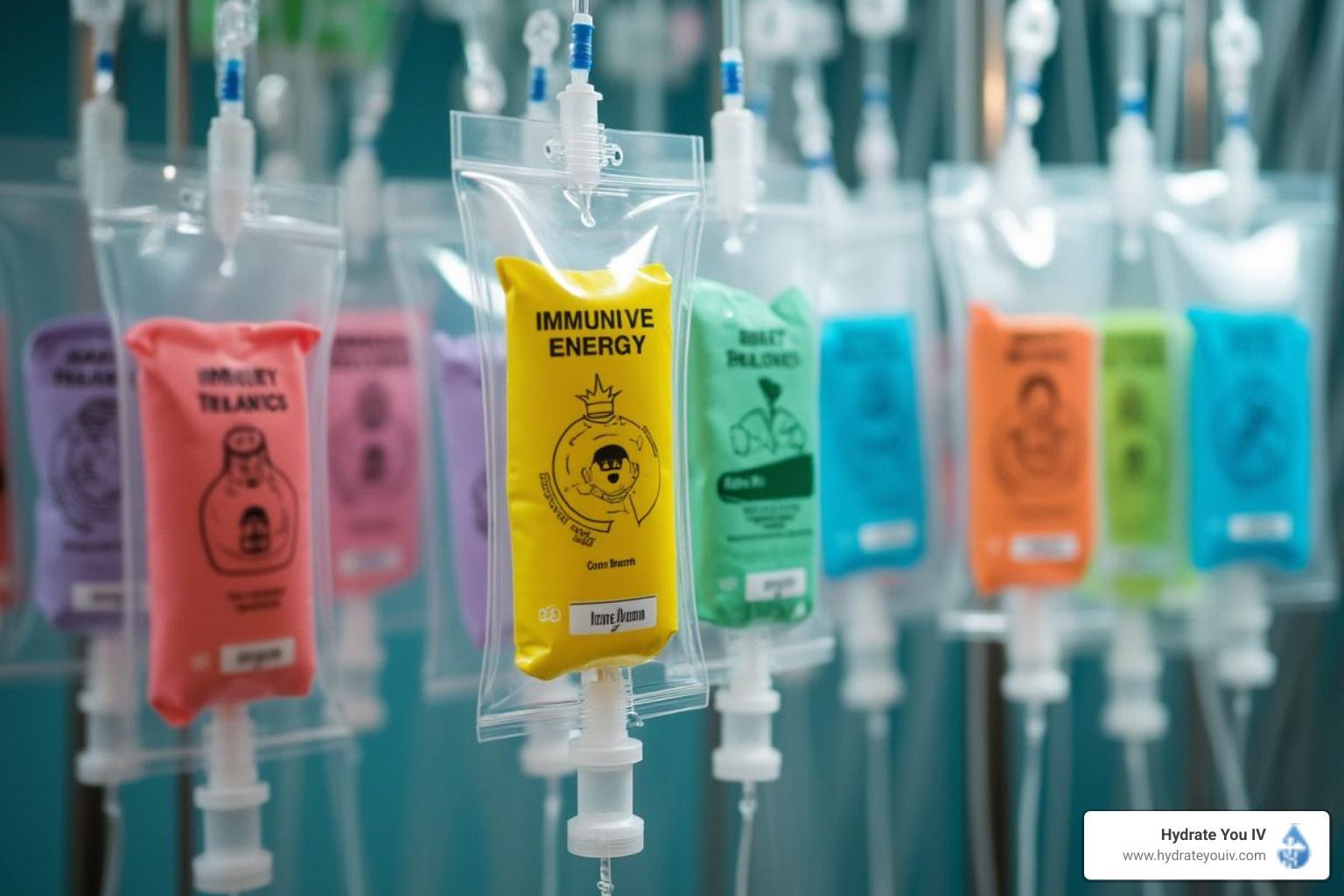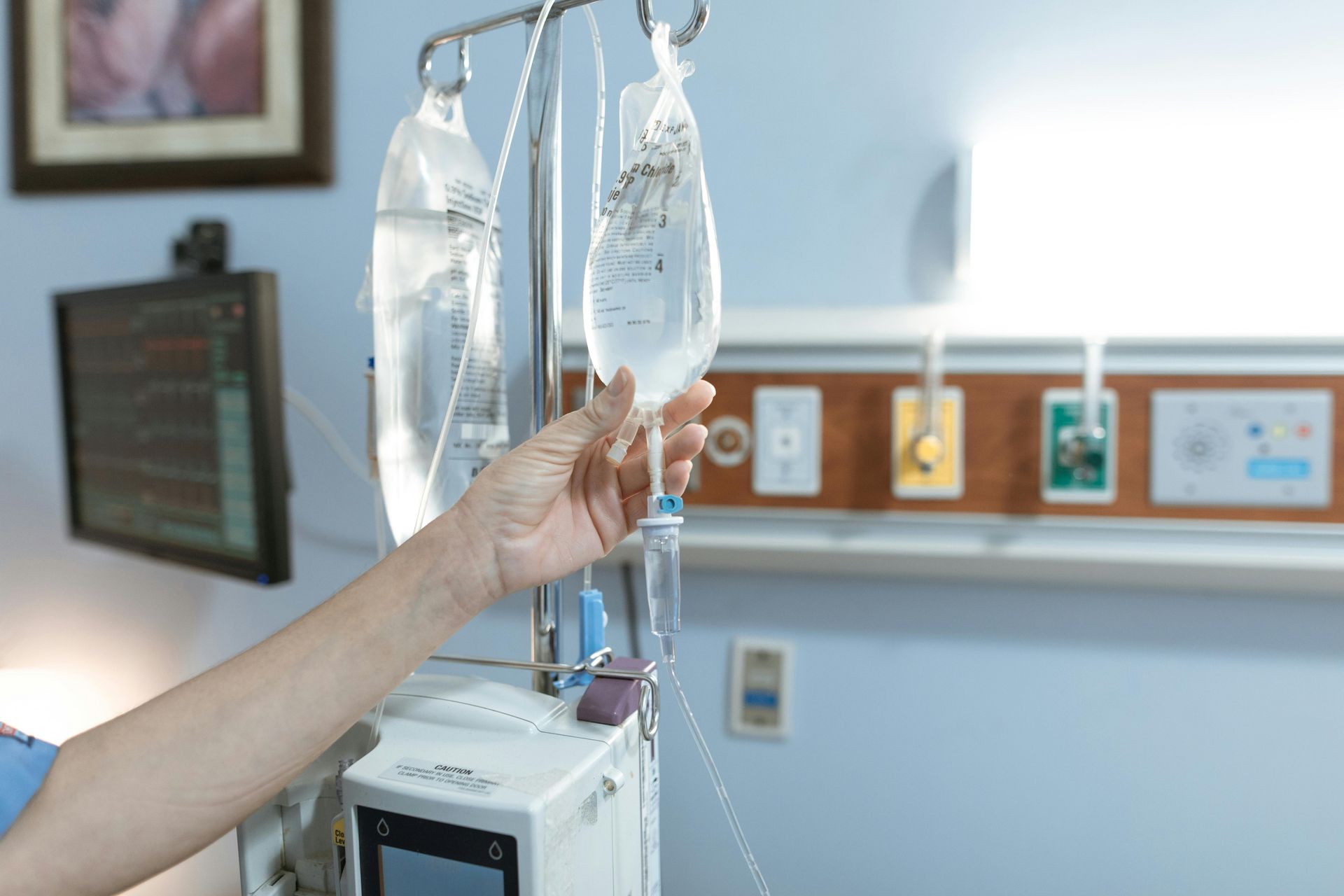IV Fluids at Urgent Care: Hydration Salvation or ER Situation?
Why IV Fluids Could Be Your Dehydration Game-Changer

Can urgent care give iv fluids for dehydration? Yes, most urgent care centers can provide IV fluids for mild to moderate dehydration. They have trained staff, IV supplies, and the ability to assess your condition quickly without the long waits and high costs of emergency rooms.
Quick Answer:
- Yes - Urgent care centers can administer IV fluids for dehydration
- Assessment - They evaluate symptoms, check vitals, and may run basic labs
- IV Types - Normal saline, lactated Ringer's, or dextrose solutions
- Cost - Typically 10x less expensive than emergency room visits
- Time - Usually 30-60 minutes for treatment
- When to go elsewhere - Severe symptoms like confusion, seizures, or inability to keep fluids down require ER care
Your body is roughly 60% water , making proper hydration essential for everything from brain function to joint lubrication. Yet nearly 75% of Americans live with chronic dehydration according to research. When you're dealing with persistent vomiting, excessive sweating, or just can't keep fluids down, the question becomes urgent: where can you get fast, effective rehydration?
The good news? You don't always need an expensive emergency room visit. Urgent care centers have become increasingly capable of handling dehydration cases, offering a middle ground between home remedies and hospital-level intervention.
As Yandree Wilson, founder of Hydrate You IV Therapy in Oklahoma, I've seen how can urgent care give iv fluids for dehydration becomes a critical question during illness, heat exhaustion, or after intense physical activity.

Dehydration 101: Causes, Symptoms & When It Turns Serious
Picture your body as a finely tuned machine where every part needs just the right amount of water to work properly. When that balance gets thrown off - when you lose more fluid than you take in - dehydration kicks in, and suddenly everything starts running less smoothly.
Fluid loss happens faster than most people realize. Maybe you've been battling vomiting and diarrhea from a stomach bug, sweating buckets during a summer workout, or running a fever that burns through your fluid reserves. Certain medications can also tip the scales - diuretics, some blood pressure medications, and even certain antidepressants can affect how your body holds onto water.
Scientific research on dehydration basics shows us that dehydration isn't just "thirsty" or "not thirsty" - it's more like a sliding scale from mild to moderate to severe . Understanding where you land on this spectrum helps determine whether urgent care can give IV fluids for dehydration in your specific situation, or if you need more intensive emergency care.
Some folks are naturally at higher risk and can slide down that dehydration slope much faster. Infants and older adults over 65 top this list, along with people managing chronic conditions like diabetes or kidney disease.
When dehydration gets really serious, it can lead to hypovolemic shock - essentially, your blood volume drops so low that your organs start getting starved of oxygen. This is the kind of emergency that skips right past urgent care and heads straight to the ER.
Mild & Moderate Warning Signs
Your body is pretty smart about sending early warning signals, though they're often subtle enough that we brush them off as just being tired or having an off day.
Thirst is actually a late-stage warning - by the time you feel genuinely thirsty, you're already mildly dehydrated. A better early indicator is your urine color . It should look like pale lemonade, not dark apple juice. When it starts getting darker, that's your kidneys trying to conserve every drop of water they can.
Fatigue and weakness creep in because your cells literally aren't getting the fluid they need to produce energy efficiently. You might notice a dry mouth or that your saliva feels sticky and thick. Headaches are common too - when you're dehydrated, your brain tissue actually shrinks slightly, pulling on the pain-sensitive membranes around it.
Muscle cramps can pop up as your electrolyte balance gets thrown off, and you might notice you're not urinating as much as usual. Your kidneys are working overtime to hold onto whatever fluid they can.
These moderate symptoms are exactly what urgent care centers handle well. The IV therapy can restore your fluid and electrolyte levels relatively quickly, often leaving you feeling dramatically better within an hour.
Red-Flag Severe Symptoms
Some warning signs mean it's time to skip urgent care entirely and head straight to the emergency room. These red-flag symptoms indicate your body is in real trouble and needs immediate medical intervention.
Sunken eyes and cheeks show significant fluid loss from your tissues. Your heart rate and breathing might be rapid as your cardiovascular system works overtime to pump blood that's become thicker due to fluid loss.
Mental changes are particularly concerning - confusion, irritability, or feeling "not quite right" mentally can indicate your brain isn't getting adequate fluid. Seizures are a medical emergency, often caused by severe electrolyte imbalances.
If you're producing little to no urine , your kidneys are struggling. When you pinch the skin on the back of your hand and it stays "tented" instead of snapping back, that's a classic sign of severe tissue dehydration.
Fainting, extreme dizziness, or a high fever above 104°F combined with dehydration creates a dangerous situation that needs emergency room-level care immediately.
If you or someone you know is experiencing these severe symptoms, don't wonder "can urgent care give IV fluids for dehydration" in this situation - head straight to the ER. These symptoms indicate your body has moved beyond what urgent care can safely handle.
Can Urgent Care Give IV Fluids for Dehydration? Quick Answer
The short answer to "can urgent care give IV fluids for dehydration" is absolutely yes - and it's often your smartest choice for getting back on your feet quickly.
Urgent care centers have become incredibly capable at handling dehydration cases. They're staffed with registered nurses and nurse practitioners who know their way around IV insertion and fluid therapy. These facilities stock everything they need - from IV catheters to various fluid solutions - and many can even run basic lab work to check your electrolyte levels on the spot.
The real game-changer is the convenience factor. While you might sit in an emergency room for hours with non-life-threatening dehydration, urgent care typically gets you seen within 15-30 minutes . And here's the kicker - you'll pay roughly one-tenth of what an ER visit would cost you.
Scientific research on IV rehydration backs up what we see every day: intravenous fluids work fast because they bypass your digestive system entirely. The hydration and electrolytes go straight into your bloodstream, which is exactly what your body needs when it's struggling to keep oral fluids down.
Can urgent care give IV fluids for dehydration in adults?
For adults dealing with dehydration, urgent care follows a straightforward process that gets you feeling better without the hospital drama.
When you walk in, they'll start with your vital signs - checking blood pressure, heart rate, temperature, and oxygen levels. Then comes the detective work: how long have you been feeling awful, what triggered the dehydration, and what symptoms are bothering you most?
They'll review your medical history and current medications (some drugs can make dehydration worse), then do a physical exam. This includes checking how your skin bounces back when pinched, looking at your mouth and gums, and making sure you're mentally sharp.
If needed, they might run basic blood work to see which electrolytes need attention. Based on all this information, they'll choose the right IV fluid type and figure out how fast to run it.
| Urgent Care | Emergency Room |
|---|---|
| Mild to moderate dehydration | Severe, life-threatening dehydration |
| 15-30 minute wait times | 2-6 hour wait times (for non-emergencies) |
| $150-400 typical cost | $1,500-4,000+ typical cost |
| Walk-in convenience | 24/7 availability |
| Basic lab capabilities | Full diagnostic capabilities |
| IV fluids, medications | Advanced interventions, ICU if needed |
The whole process is designed to be efficient and effective. Most adults walk out feeling significantly better within an hour of arriving.
Can urgent care give IV fluids for dehydration in kids & seniors?
Kids and older adults absolutely can get IV fluids at urgent care, but these age groups need some extra attention to keep everything safe and effective.
When treating children , everything gets scaled down and carefully calculated. The IV fluid amounts are based on weight-based dosing - no guesswork here. They'll use smaller, pediatric-sized IV catheters that are gentler on little veins. Of course, you'll need to give consent as the parent or guardian, and the staff will explain everything in kid-friendly terms to help reduce anxiety.
Children can go downhill faster than adults when dehydrated, so the nursing staff keeps a closer eye on vital signs throughout the treatment. The good news? Kids also tend to bounce back remarkably quickly once they're properly hydrated.
For seniors , the approach is more cautious but equally effective. Older adults often take medications that affect how their bodies handle fluids, so the medical team will carefully review all prescriptions. If someone has heart, kidney, or liver problems , certain IV fluids might be off-limits or need to be given more slowly.
The infusion rate is typically slower for elderly patients because their bodies may not handle rapid fluid changes as well as younger folks. The staff will also assess fall risk since dehydration makes seniors more prone to dangerous tumbles.
Both age groups benefit tremendously from urgent care IV therapy when it's done with the right precautions.
Inside the Drip: Evaluation, Fluid Types & What Patients Feel
Walking into urgent care for dehydration feels a bit like being welcomed into a well-oiled machine designed specifically for your comfort. The triage process starts the moment you check in - staff quickly assess how you're feeling and take your vital signs to determine how urgently you need treatment.
Your provider will likely want to run some basic lab work to peek under the hood at your electrolyte levels. They're checking sodium, potassium, chloride, and sometimes kidney function markers to choose the perfect IV fluid cocktail for your specific situation.

The IV fluid world has several star players, each with their own specialty. Normal saline - that's 0.9% sodium chloride - is the workhorse of rehydration with a pH around 5.5. Lactated Ringer's solution steps up the game by containing electrolytes that better match your blood plasma, with a more body-friendly pH of 6.5-7.5.
When you need some extra energy along with hydration, dextrose 5% in water provides glucose to fuel your recovery. For the premium experience, Plasma-Lyte offers a balanced solution that closely mimics your body's natural fluid composition.
The choice isn't random. Your provider considers your specific electrolyte imbalances, medical history, and how dehydrated you actually are. While normal saline works beautifully for most cases, lactated Ringer's often gets the nod when your electrolyte balance needs more attention.
For vein selection, nurses become expert treasure hunters, looking for straight, bouncy veins in your forearm or back of your hand that can comfortably handle the IV catheter. The insertion feels like a quick pinch - most patients are surprised by how tolerable it is.
Side effects are thankfully rare, but it's worth knowing what to watch for. Fluid overload can happen if too much fluid goes in too fast, potentially causing swelling or breathing problems. Allergic reactions are extremely rare with basic saline solutions. Infection at the IV site is minimized through proper sterile technique.
Most patients start feeling notably better within 30-60 minutes as their fluid levels normalize. You might notice your energy returning, clearer thinking, and relief from that nagging headache or nausea relatively quickly.
Insurance typically covers urgent care IV therapy when it's medically necessary, so you'll pay your standard urgent care copay or deductible. Self-pay patients can expect costs ranging from $150-400 depending on the facility and treatment complexity - still a fraction of emergency room costs.
More info about IV Therapy for Dehydration is available through our mobile service in Oklahoma, which brings professional IV therapy directly to your location when you can't make it to urgent care.
Step-by-Step IV Visit
Your urgent care IV journey unfolds predictably and efficiently, taking the guesswork out of what can feel like a stressful situation.
Check-in takes about 5-10 minutes and involves presenting your insurance card and ID, completing brief intake forms, and describing your symptoms to the triage nurse.
The assessment phase lasts 10-15 minutes and includes vital signs measurement, a thorough provider examination, medical history review, and lab orders if your situation calls for them.
Consent happens next in about 5 minutes - your provider explains IV therapy, discusses risks and benefits in plain English, and has you sign a consent form.
IV insertion and treatment is the main event, lasting 30-60 minutes . The IV catheter placement happens quickly, fluid infusion begins immediately, and staff periodically check your vital signs and monitor how you're feeling.
Discharge wraps up in 5-10 minutes with IV removal, clear care instructions for home, follow-up recommendations, and any prescription medications if needed. The entire process typically takes 1-2 hours from arrival to walking out the door feeling significantly better.
Risks & Safety Checks
While IV therapy ranks among the safest medical treatments available, urgent care providers take important safety precautions to protect every patient.
Certain conditions require extra caution or alternative treatment approaches . Severe heart failure means excess fluid could worsen the condition, while severe kidney disease may prevent your body from processing additional fluid properly. Some medications interact with IV solutions, and known allergies to IV components obviously rule out standard treatments.
Pre-treatment screening covers all the important bases - current medications and supplements, previous reactions to IV therapy, heart and kidney function, pregnancy status, and recent surgeries or medical procedures.
Your urgent care providers are specifically trained to recognize when someone needs emergency room care instead of standard IV therapy. They'll arrange immediate transfer if your condition turns out to be more serious than initially apparent - your safety always comes first.
Prevention & Home Fixes: Stay Ahead of the Thirst
The smartest approach to dehydration? Don't let it happen in the first place. After years of helping people recover from dehydration, I can tell you that staying ahead of thirst is infinitely easier than scrambling to catch up once you're already behind on fluids.
The classic "8x8 rule" gives you a starting point - eight 8-ounce glasses of water daily. But your body's actual needs depend on how active you are, where you live, and your overall health. Men typically need about 3.7 liters daily while women need around 2.7 liters according to medical guidelines.
Here's something many people don't realize: you don't have to drink all your fluids. Water-rich foods can boost your hydration significantly. Watermelon is 92% water, cucumbers are 95% water, and oranges pack 87% water content. Soup, broth, yogurt, and milk all count toward your daily fluid goals too.
When you're dealing with mild dehydration at home, oral rehydration solutions like Pedialyte work better than plain water because they replace lost electrolytes. Sports drinks help too, though you might want to dilute them if they taste overly sweet. Coconut water provides natural electrolytes without artificial additives.
The key is taking small, frequent sips rather than chugging large amounts all at once. Your body absorbs fluids more efficiently when you spread intake throughout the day.
Limit alcohol and caffeine when you're already dehydrated - both can actually worsen fluid loss.
Your urine color serves as an excellent hydration gauge. Pale yellow like lemonade means you're well-hydrated, while dark yellow like apple juice signals you need more fluids.
Certain situations demand extra attention to fluid intake. Athletes and outdoor workers should pre-hydrate before activity and replace fluids during breaks. Hot weather requires increased intake even when you don't feel thirsty. Illness with fever burns through fluids faster as your body works to cool itself. Even air travel dehydrates you due to low cabin humidity.

The truth is, most dehydration cases we see could have been prevented with consistent daily habits. But when prevention fails and you need professional rehydration, knowing that urgent care can give IV fluids for dehydration provides peace of mind.

Frequently Asked Questions about Urgent Care IV Hydration
How quickly will I feel better after IV fluids?
Most people start feeling noticeably better within 30 to 60 minutes of starting their IV drip. You'll likely notice your headache lifting first, followed by increased mental clarity and energy levels returning. That queasy feeling from dehydration? It often disappears surprisingly quickly once your body gets the fluids it desperately needs.
The magic happens because IV therapy delivers hydration directly into your bloodstream, completely bypassing your digestive system. While drinking water might take 4 to 6 hours to fully restore your fluid levels, IV therapy can accomplish the same thing in just 1 to 2 hours .
Complete recovery varies from person to person. If you were mildly dehydrated, you might feel back to normal within a few hours. More severe dehydration could take a full day to completely bounce back, even with IV treatment.
Are IV fluids at urgent care covered by insurance?
Most insurance plans do cover medically necessary IV therapy at urgent care centers, which is great news for your wallet. You'll typically pay your standard urgent care copay - usually somewhere between $25 and $75 - rather than the full cost of treatment.
The key phrase here is "medically necessary." When you're genuinely dehydrated and need IV fluids to feel better, insurance companies generally consider this essential care. Some plans might require you to meet your deductible first, but emergency dehydration treatment rarely needs prior authorization.
If you don't have insurance, urgent care is still your best bet financially. You're looking at roughly $150 to $400 for IV therapy at urgent care versus $1,500 to $4,000+ at the emergency room.
What should I bring to my visit?
The essentials are pretty straightforward - bring your photo ID, insurance card, and a list of any medications or supplements you're taking. If you have complex medical history, jot down the key points so you don't forget anything important when you're not feeling well.
Think about the practical stuff too. If you're feeling really rough, bring someone who can drive you home afterward. You'll probably feel much better after treatment, but it's smart to have backup transportation just in case.
For your comfort during the 30 to 60 minute treatment , consider bringing your phone charger for entertainment and maybe a light snack for afterward. Wear something comfortable with easy access to your arms.
Be ready to share the story of your dehydration - when it started, what might have caused it, and how much fluid you've been able to keep down. This information helps the medical team choose the best treatment approach for your specific situation.
At Hydrate You IV, we bring all the necessary supplies directly to you, so you don't need to worry about packing anything except yourself. But when can urgent care give iv fluids for dehydration becomes your pressing question, being prepared for your visit helps ensure you get the fastest, most effective treatment possible.
Conclusion
So, can urgent care give iv fluids for dehydration? The answer is a resounding yes - and for most cases involving mild to moderate dehydration, it's actually your smartest choice for getting back on your feet quickly without breaking the bank.
Think of urgent care as that sweet spot between trying to tough it out at home and facing the chaos of an emergency room. These centers have everything needed to get you properly rehydrated: experienced nurses who can start an IV in their sleep, the right equipment, and most importantly, the ability to evaluate your condition without the hours-long wait you'd face at the ER.
What makes urgent care so appealing is the speed and affordability factor. You're looking at 30-60 minutes of treatment versus potentially waiting all day at the hospital, plus you'll save thousands of dollars in the process.
But here's the important part - know your limits . If you're experiencing severe symptoms like confusion, seizures, or you literally cannot keep any fluids down, don't mess around with urgent care. Those red-flag symptoms mean your body is in serious trouble and needs emergency room intervention immediately.
For those of you in the Oklahoma area, we at Hydrate You IV have created an even more convenient option. Why drag yourself to urgent care when you're feeling awful? Our mobile IV therapy brings that same professional, nurse-administered treatment right to wherever you are - your couch, your office, even your hotel room. No travel fees, no waiting rooms, just fast relief delivered to your door.
The real secret to avoiding these dehydration emergencies altogether is staying ahead of the game. Your body is 60% water for a reason - that's not just a fun fact, it's a reminder of how crucial proper hydration is for everything your body does. Keep an eye on your urine color, bump up your fluid intake when you're sick or it's blazing hot outside, and don't wait until you feel like you've been hit by a truck to get help.
Whether you end up choosing urgent care, need emergency treatment, or decide our mobile service is right for you, the most important thing is getting professional help when home remedies just aren't cutting it. Your body will thank you for taking dehydration seriously and getting the care you need.
More info about dehydration IV treatments - we're standing by to help keep you hydrated and feeling your best throughout Oklahoma.
